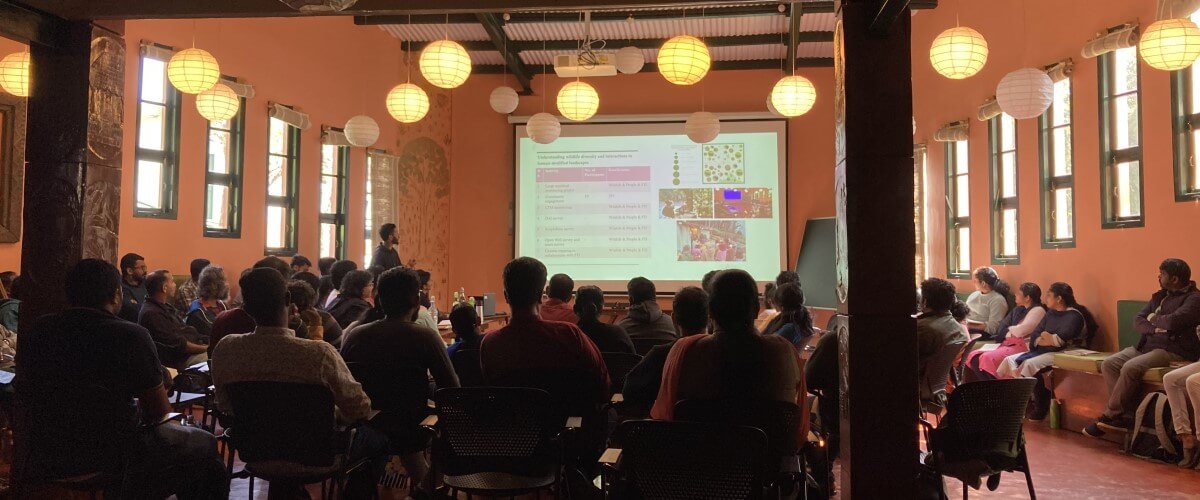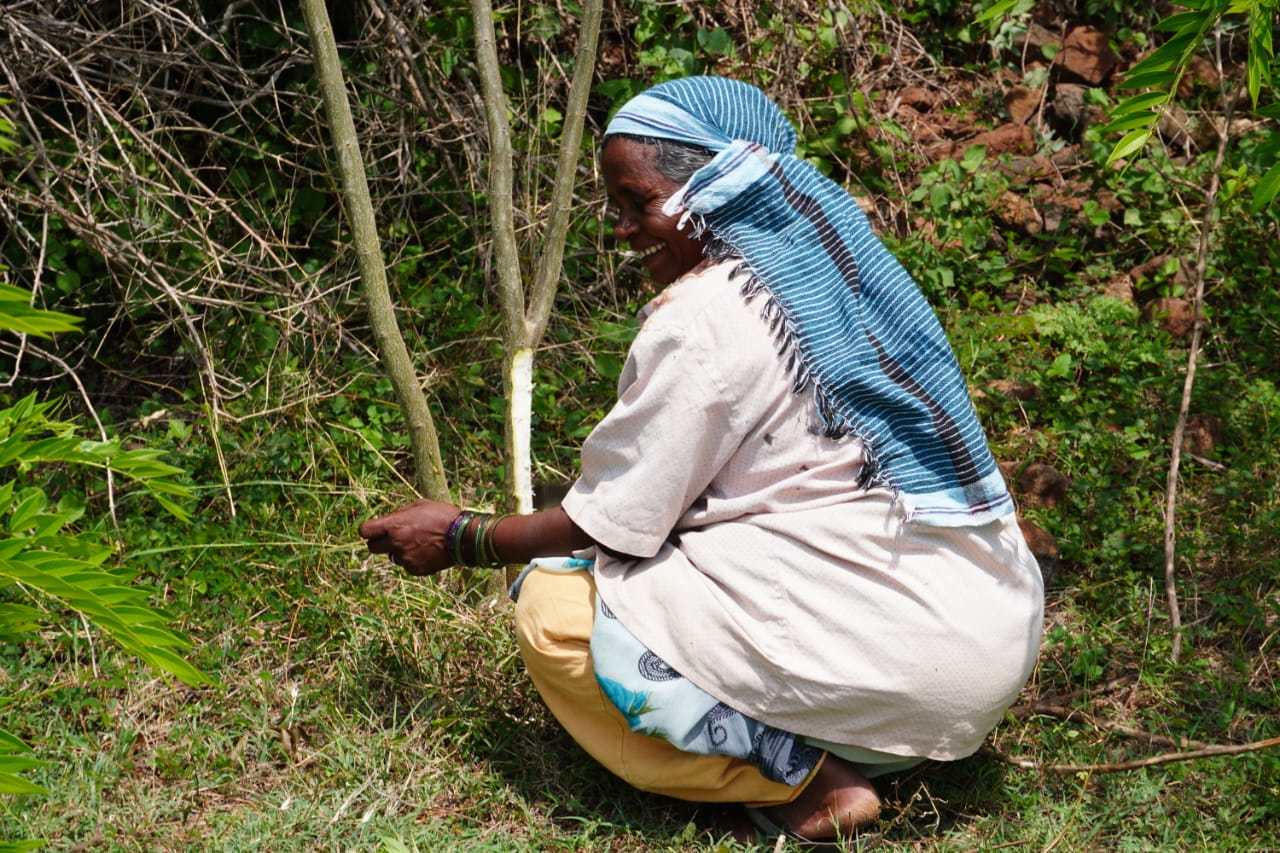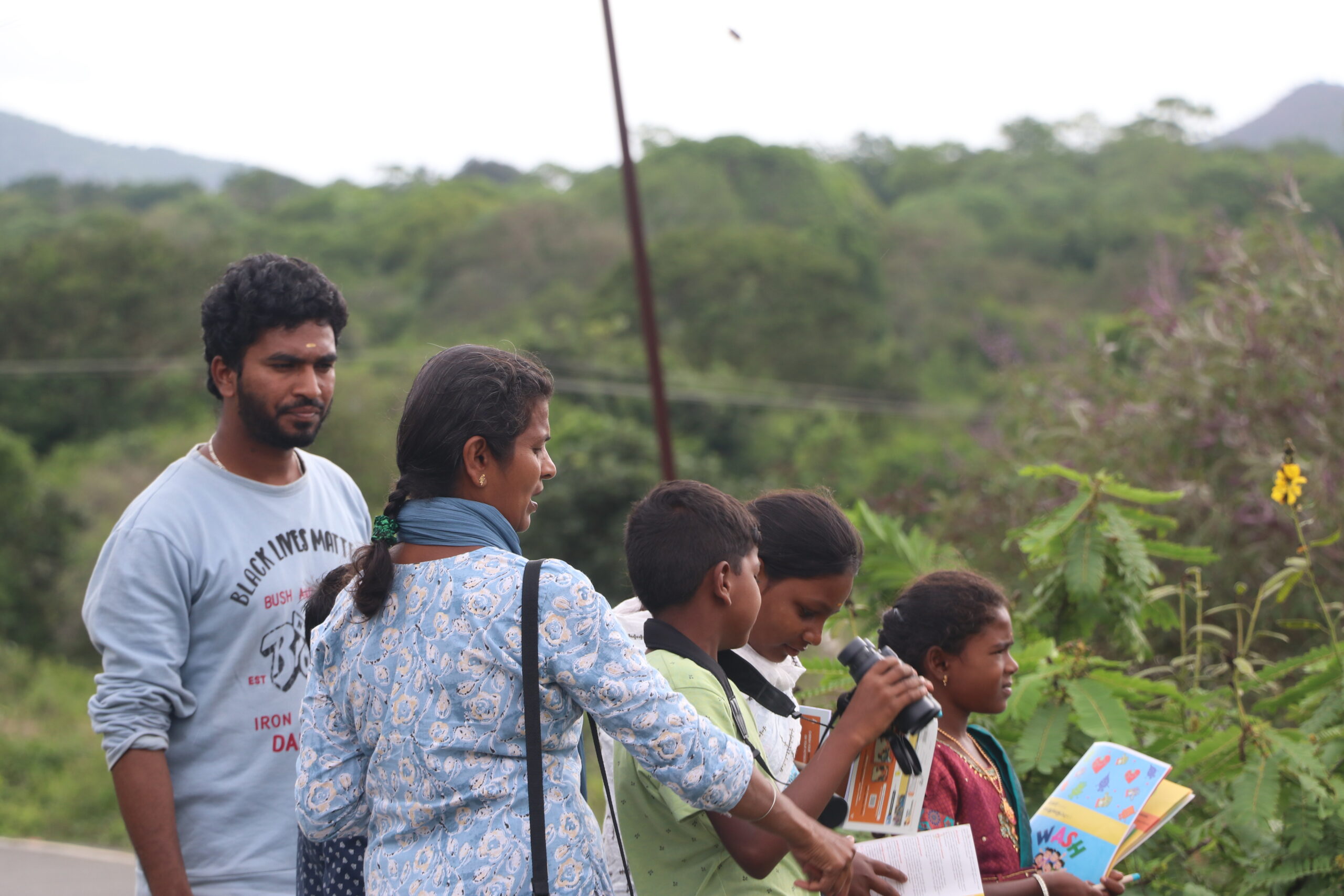October 28, 2022
By Keystone Foundation team
On October 26 to 28, Keystone held its bi-yearly programme review, when the full team comes together to assess the impact of our seven programmes. Our field staff and team members from working areas other than Kotagiri travel to the campus, for three days of a rich exchange of updates on work, ideas, successes, challenges, anecdotes and more.
With each programme conducting countless projects at any given time, it is often the case that team members of other programmes may not be aware of the work being done, thus losing out on valuable perspectives that may come up. The programme review provides a space for understanding each other’s work, paving the way to form a larger picture of Keystone’s goals and values, and brainstorming solutions to challenges.
On Day One, the Organisational Development programme began the review with updates on campus infrastructure (a new storage unit and repairs done around the campus), improvements in IT and technology, funding grants, and an introduction to new software to help manage and access project budgets. An update on communications was also given, followed by a quick brainstorming session on future plans for Keystone’s 30th birthday. We also revisited a curated list of ideas that may evolve into future projects or activities, looked at timelines and pondered possibilities of execution.
The day ended with a discussion on an exercise that had been carried out earlier this year: the Institutional Strategy and Future Pathways, which brought together the management group (programme heads, directors and founders) to take a step back and look at the larger organisational goals.
Day Two started with updates from the Biodiversity Conservation programme, which expanded on their last six months of rigorous work across the Nilgiris, build upon the assessment of years of data collection in the form of animal sign surveys and behaviour studies. The team shared updates on restoration activities, awareness film screenings and collaborations with allies.
One of our two newest programmes, Climate Change, presented on its beginnings to a review for the first time. Under its guidance, 14 Climate Smart schools are working to ensure the next generation is growing into socially responsible and aware citizens in the Nilgiris, Nilambur, Wayanad, xx and xx. The programme, launched to focus deeply on the climate lens through which Keystone views all its projects, making it a unique venture whose impact has the potential to reverberate across the institution. An open discussion saw many team members eager to step forward and share their observations of climate impacts within their own projects, from changes in quality of uncultivated foods and vegetation that supports Non-Timber Forest Produce across central India to changes in the production of wild honey and even traditional instruments in Nilambur, Kerala.
The People and Nature Collectives programme shared updates from the leadership training co-organised by them for Particularly Vulnerable Tribal Groups (PVTG). Kicking off the second year of the training, PNC team members are involving the participating ten fellows in a self-profiling exercise. They have also been working to preserve traditional knowledge with community collectives (which may potentially contribute to implementing habitat rights)
The day ended with Keystone’s two sister for-profit ventures, Last Forest Enterprises and Aadhimalai, sharing updates on sales, marketing and customer responses to the Non-Timber Forest Products supported by both, like honeys, soaps, millets and more.
Day Three began with Community Well-being sharing updates on agricultural support – especially for women farmers in the form of seedbanks, nurseries, bioinputs, etc. The team has also held trainings on the use of the Dhwani app – which enables rural communities to build technological solutions for social change. Empowering communities to provide themselves preventive healthcare measures is another major task taken up by the CWB programme, organising trainings for community health workers on mental health, menstrual health, nutrition and substance abuse in Kotagiri and Nilambur. CWB’s Governance efforts also led to the programme receiving a Collector’s Award for Dedicated Service (from Coimbatore district) in August – owing to their work in the facilitation of the Forest Rights Act!
CWB was followed by our Water & Sanitation programme, whose team members spent the last six months building trenches for water retention and testing water in Aracode. In Kotagiri, they mapped 50 springs, monitoring water in several of them. They have also been working to improve sanitation in schools, installing incinerators and toilets, and organising first aid training for sanitation workers, who are often victims to the perils of their work. The team also runs initiatives tailored for women – observing World Breastfeeding Week in local anganwadis to help remove stigma, working on menstrual health management with women migrant workers, arranging for welfare cards for sanitation workers through TAHDCO and more.
The review ended with the Networks & Alliances programme sharing updates from our Potka office in Jharkhand, who onboarded six men and two women community resource persons in Jharkhand and West Bengal. In the last few months, they have trained Barefoot Ecologists on gender and climate change, helped revive waterways, improved water accessibility in hamlets and promoted traditional agriculture in a landscape that tends to lean heavy on chemical use, owing to lack of information and pressure on livelihoods. The Networks programme also works all across the Western Ghats, impacting about 2,000 families from particularly vulnerable tribal groups (PVTG) from Maharashtra to Kerala.
Discussions on the way forward for all programmes opened with ambition and ended with a sense of promise and purpose – that the next six months will be just as impactful and enriching as the last.


















